The latest text from one of German New Wave’s founding members and all around heavy-hitter; a wide-ranging compilation of art and testimony championing the Iranian feminist movement from Marjane Satrapi; and a moving, braided narrative of grief and recovery from a lauded Icelandic author. Our editors review some of the most exciting works in translation coming to the Anglophone this month.
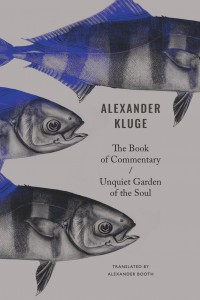
The Book of Commentary / Unquiet Garden of the Soul by Alexander Kluge, translated from the German by Alexander Booth, Seagull Books, 2024
Review by Bella Creel, Blog Editor
Filmmaker, author, and philosopher Alexander Kluge’s most recent oeuvre, The Book of Commentary / Unquiet Garden of the Soul, is an act of rethinking. Born in Germany in 1932, Kluge blurs the edges of the many years of his life in this ambitious work, expanding beyond the first-hand, beyond generations, drawing connections between now and before, all in order to fully describe the experience of a single life. Alexander Booth offers a wonderfully dense and witty translation from the German, with no aversion to a confusing syntax that demands rereading and rethinking.
Kluge is trying to find the right words throughout this collection, which, in the process of its creation, must have been turned over and inside out, stretched to snapping and magnified to the molecular; reading it, in turn, requires a certain liquifying of the brain. This giving-in allows one to absorb the words, which only then can be reformed into some sort of meaning. Kluge himself seems to follow a similar process:
Where does all my ‘fluent speech’, my rabid desire to write, come from? I listen to others. And carefully! A word that flies towards me, an observation that charms me into conversation, a quotation that I read: all of this gets stored inside me for the long-term.
I usually tear books to shreds, marking any places that captivate me in colour pencil before ripping the page out. These I attach to other findings of mine with a paper clip. They’re often annotated. My flat is full of these piles of paper. My personal bastion against the ‘ignorance that shakes the world’.

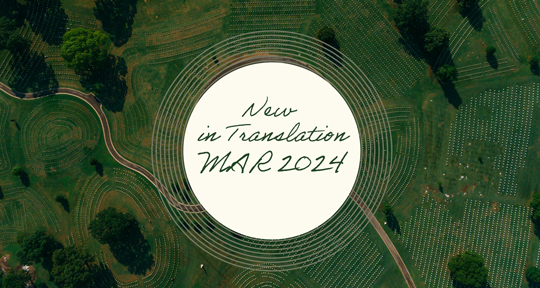

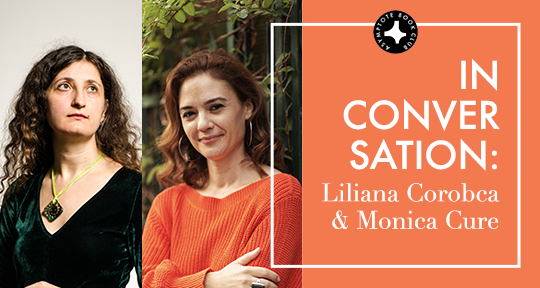
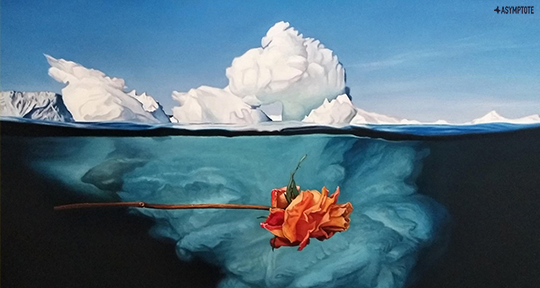
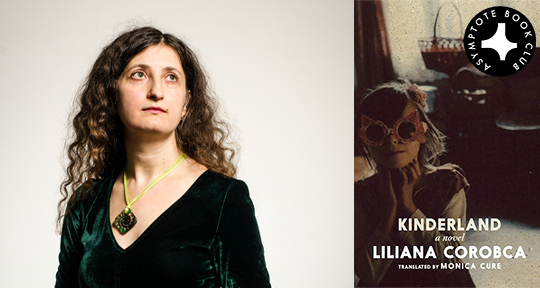
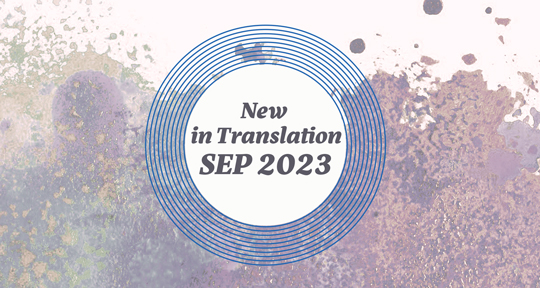
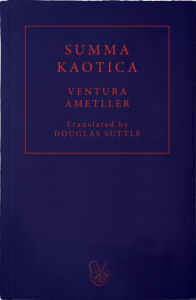

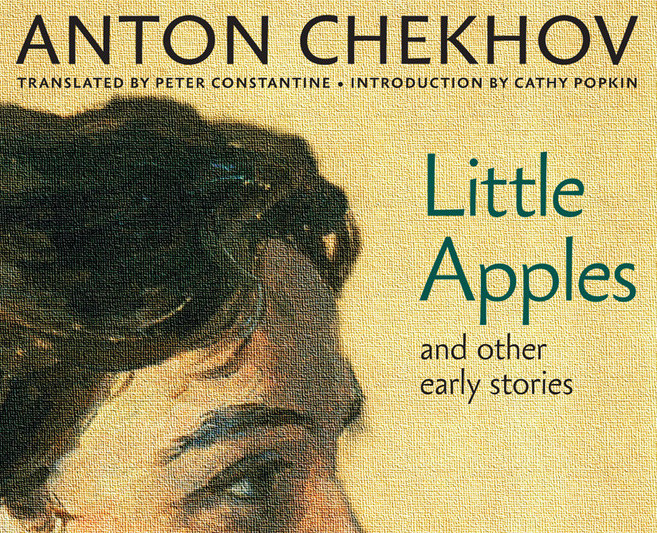
Compass and Rifle: On Roque Dalton’s Stories and Poems of a Class Struggle
No one escapes Dalton’s inquisitive pen . . .
Stories and Poems of a Class Struggle by Roque Dalton, translated from the Spanish by Jack Hirschman, Seven Stories Press, 2023
On Thursday, July 6, 2023, the inaugural day of Guatemala’s International Book Fair (FILGUA), the government of El Salvador requested organizers to exclude Salvadoran author Michelle Recinos’ Sustancia de hígado (F&G Editores) from the fair. The next day, online news outlet elfaro revealed that El Salvador’s ambassador in Guatemala had said, “It would’ve been an unpleasant thing for the government of El Salvador if this book had been a part of the fair.” Details are scarce, but presumably, this action was related to Michelle’s story Barberos en huelga, winner of the 2022 Mario Monteforte Toledo Prize, which openly criticizes sitting president Nayib Bukele’s war on gangs.
Hearing this, I can only imagine what Roque Dalton would have written about Bukele.
Roque Dalton’s Historias y poemas de una lucha de clases (Stories and Poems of a Class Struggle) dates back to 1975, and remains as timely as ever. In a time when most Central American countries are under authoritarian regimes and have experienced backslides of democracy, the life and work of Roque Dalton is at once a beacon of hope, an inspiration, and a warning sign. Historias y poemas de una lucha de clases is a book filled with courageous testimony, the poet’s typical dry humor, and bone-chilling depictions of state violence. Here, Dalton is hyperaware of the pain and plight of his compatriots, but in addition to his typical grittiness and social critique, we also find tenderness, softness, beauty, and frailty; Dalton’s acute perception is both a rifle and a compass, manifesting in words of both rebuke and encouragement.
READ MORE…
Contributor:- José García Escobar
; Language: - Spanish
; Place: - El Salvador
; Writers: - Alaíde Foppa
, - Carlos Fonseca
, - Ernesto Cardenal
, - Jack Hirschman
, - Jaime Barba
, - Julio Delfos Marín
, - Luis de Lión
, - Luis Melgar Brizuela
, - Margaret Randall
, - Michelle Recinos
, - Otto René Castillo
, - Roque Dalton
; Tags: - authoritarianism
, - Central American literature
, - class struggle
, - elfaro
, - F&G Editores
, - fascism
, - FILGUA
, - Mario Monteforte Toledo Prize
, - Salvadoran literature
, - Salvadoran poetry
, - Seven Stories Press
, - social commentary
, - social critique
, - state violence